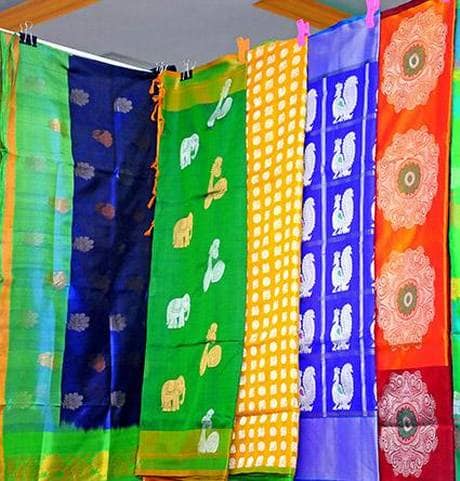
‘Powerlooms are pushing us out of business’
Weavers in Venkatagiri, wedded for centuries to their craft, are slowly leaving a profession that was once patronised by kings and queens.
From a glorious past, the weaving community in the area has now been reduced to looking for unskilled jobs in order to survive, despite their exquisite saris getting a Geographical Indication tag.
“The power looms, with their mass-produced saris that come at half the price, have pushed us out of business. The pure cotton sari with elaborate zari work used to sell like hot cakes in the past. Not anymore,” lament weavers in Bangarupeta. Only elderly weavers are still in the profession, making lightweight cotton saris.
Staying afloat
Some young weavers are trying to improvise in order to stay afloat, and are relying on silk weaving as they can get decent returns as the cost of the sari goes up. Depending on the intricate work, a hand-woven sari can fetch anywhere between ₹4,000 to ₹25,000 with the entire family working for five days to make one sari.
“We are capable of making saris that will cost ₹1 lakh apiece for weddings and other special occasions. However, we begin work on such saris only after getting an advance payment,” S. Nagendra tells The Hindu. “We do our best to survive in this profession, such as learning Jacquard weaves,” Nagendra adds.
Weavers in the region have tied up with leading boutiques in Hyderabad and other cities to market their specially-woven saris with elaborate designs within the country and abroad.
Support sought
The weavers say they need more support from the government for their eco-friendly products as several schemes launched by the Union and State governments have failed to reach them in the past. Direct deposit of subsidy to their individual bank accounts would go a long way, the weavers say.
Presently, the weavers get ₹1,000 subsidy on silk yarns worth ₹25,000 per ‘Maggam’. The weavers want the subsidy to be enhanced to at least ₹2,000.
More expos should be organised in cities and towns all through the year to eliminate middlemen, and a special drive to promote saris and dress material made out of organic cotton can go a long way in improving the fortunes of the handwoven cloth makers, the weavers suggest.
source: http://www.thehindu.com / The Hindu / Home> News> States> Andhra Pradesh / by Special Correspondent / Nellore – January 05th, 2019